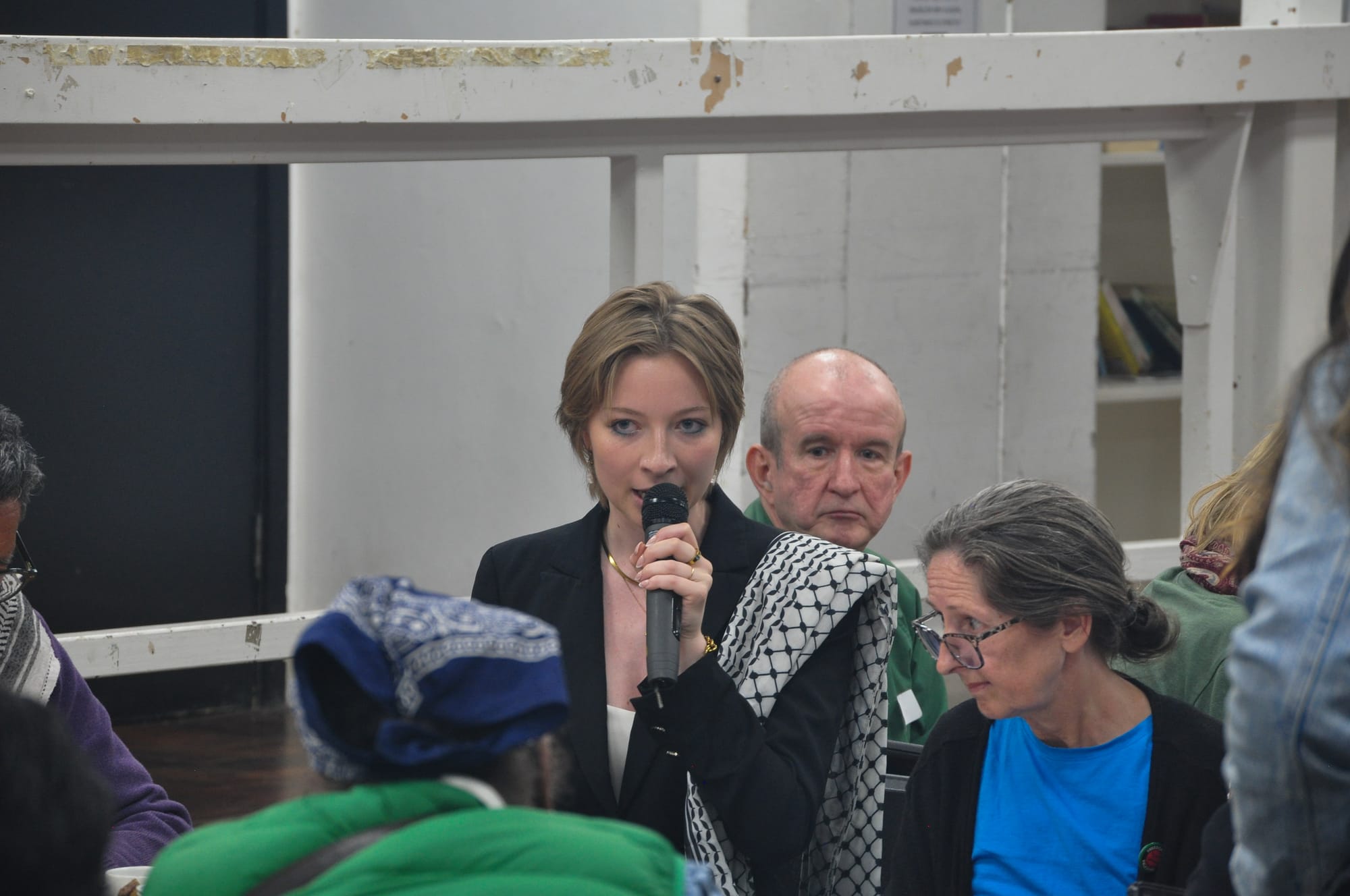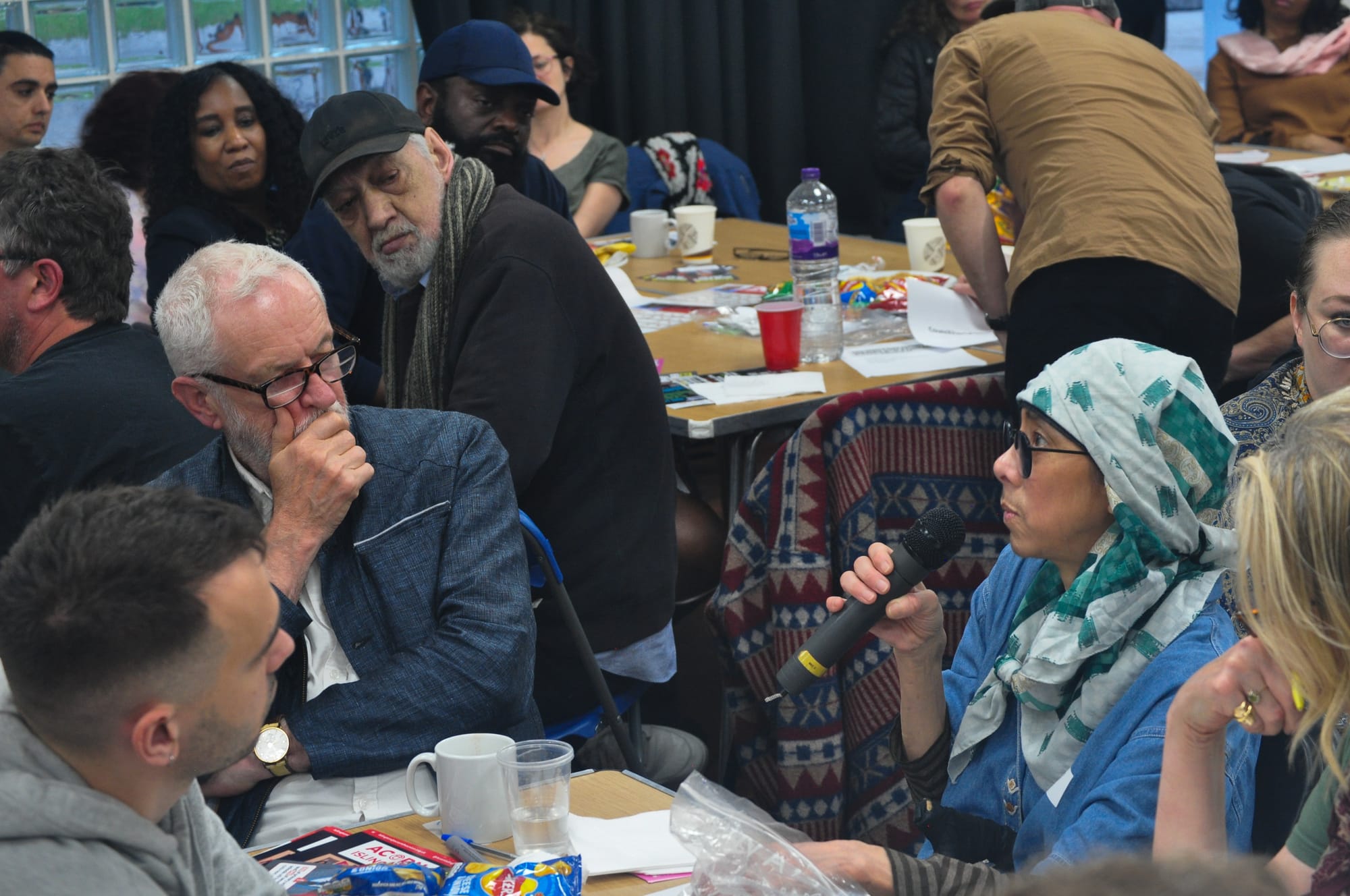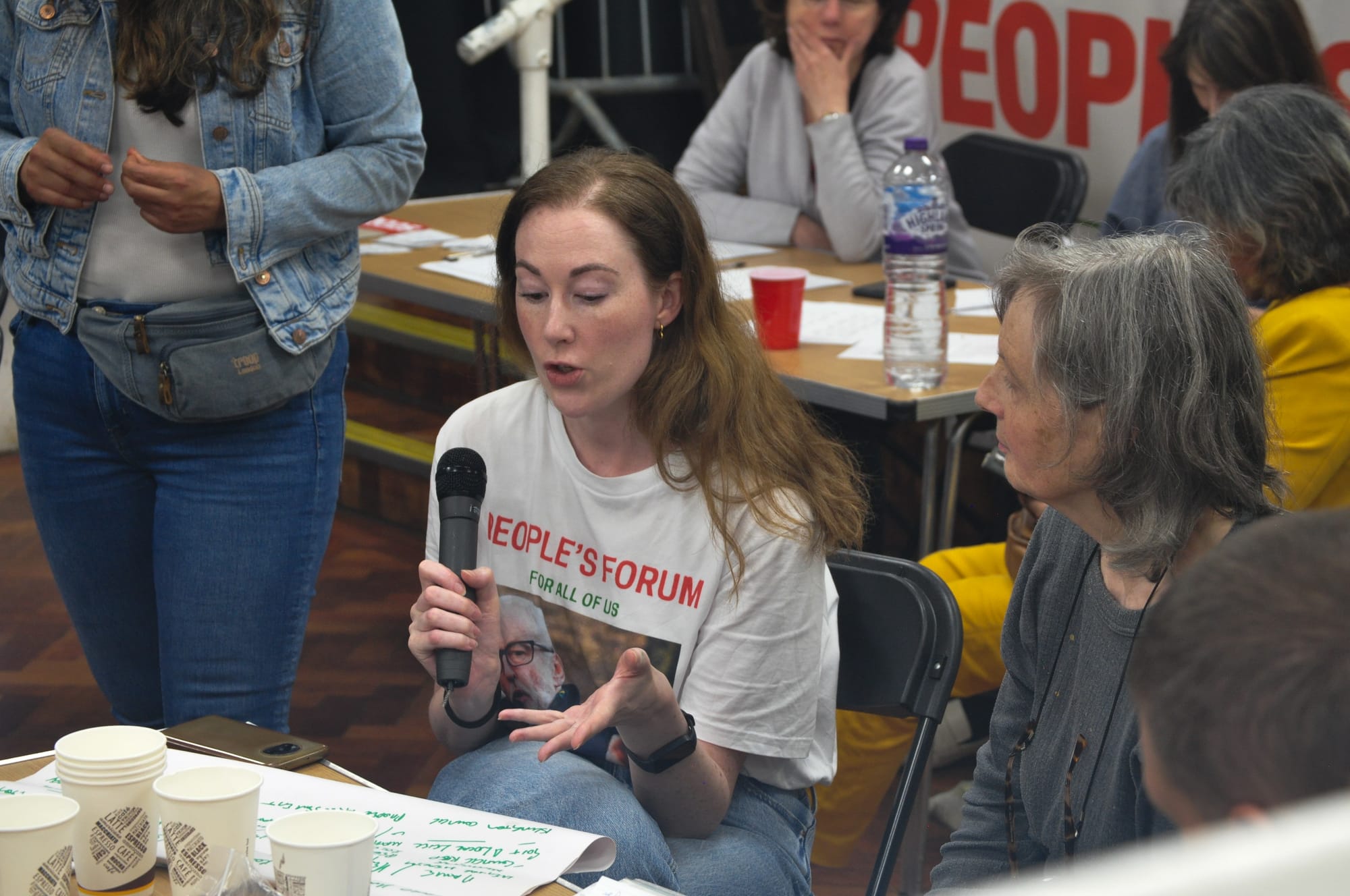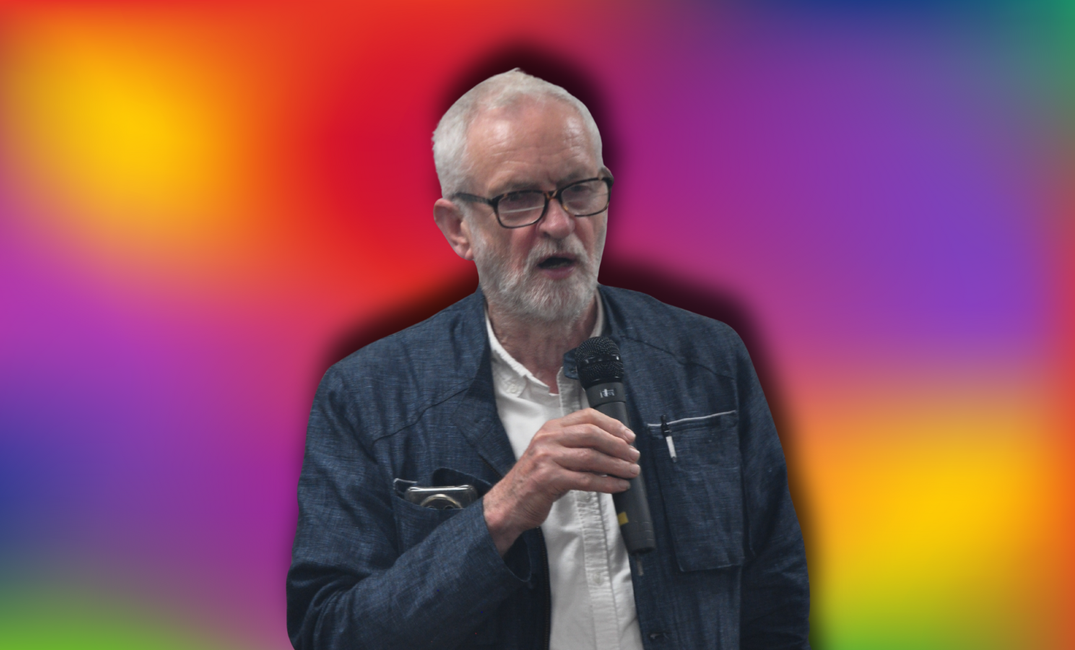As our democracy continues to crumble, how can we really put power back into the hands of the people? Naked Politics speaks to Jeremy Corbyn to find out.
Banseka Kayembe
We’ve heard it now for almost ten years: “democracy is in crisis”. Voter turnouts are plummeting, and trust in politicians feels like it's at a record low. Public protest is increasingly criminalised. The gap between the political establishment and the people seems wider than ever. Democracy can safely be added to the (long) list of things in Britain that are broken.
Jeremy Corbyn is an MP who spent decades outside the spotlight of British politics, only to be thrust into the centre of it- becoming immeasurably popular with young people whilst also being the “devil incarnate” if you uncritically drank the mainstream media koolaid - after winning the Labour Party leadership election in 2015. Whether you like him, or loathe him, his political principles have remained consistent throughout his 40 plus years in Parliament, and one of the things he has remained passionate about has been democracy.
As I write this, the news that Jeremy intends to create a new political party with 30 year old socialist MP Zarah Sultana has just broken. Unsurprisingly, “Your Party” (its final name is still pending) is attempting to put democracy at its heart. Their website’s home page states they’ll “host an inaugural founding conference so you can help shape how your party works, what it stands for, and how we organise to win.” So what better time was there to get a glimpse into what the future of British democracy could look like than catching up with Corbyn himself?
I first spent time with Jeremy in June this year, not in an enclosed office space in Westminster but in his element: amongst his constituents in an Islington community centre. Since getting re-elected in 2024 as Islington North’s MP (this time as an Independent after being suspended by Keir Starmer) he’s been holding local events called People’s Forums. In comparison “Labour party meetings tend to be procedural, bureaucratic… and not very interested in engaging in campaigns and communities” he explains to me later looking relaxed over Zoom. These meetings are focused on a single issue each time, such as housing or mental health.
"A lot of people who were in receipt of PIP came and very bravely described their own situation, and what would happen to them if they lost it. It was a deeply moving experience"
There is normally a short speech from Jeremy and seasoned community organisers in the room- but the bulk of the time is spent workshopping ideas in groups to share. It's a room of local residents from a variety of backgrounds; listening to residents discuss and debate housing issues it’s an interesting example of local democracy at work. “I'm pleased with the way they've started and developed. When the government announced they were taking five billion out of the budget allocated for personal independence payments” they held an emergency forum. “A lot of people who were in receipt of PIP came and very bravely described their own situation, and what would happen to them if they lost it. It was a deeply moving experience; and it helped me to have information and examples I could use in Parliament.”

The veneration of Corbyn as an individual sometimes seems contradictory to how I suspect he sees himself in politics. On the other side, more hostile commentators have derided his popularity as “the cult of Corbyn”. There is no doubt that many people who like Corbyn feel a kind of reverence for him, and he remains one of the most recognisable politicians in the UK, a likely advantage to building traction quickly for a new party. But I can see that he doesn't get his kicks from being exalted like many politicians would. When introduced to speak at The People’s Forum event in June as the “star guest” he furrows his brow slightly and looks bemused. He mostly defaults to saying “we” over “I” and looks most comfortable sitting amongst his constituents as they workshop housing issues. When I eventually get some one on one time with Corbyn, he’s concerned about a constituent who’d been in an altercation with the police on a demonstration and given impractical bail conditions rather than getting into the swing of talking about himself. He’s adamant people power is the reason he won his seat back last year. “We tried to run the campaign in a positive and fun atmosphere, so we had a very large number of people helping us, knocked on lots of doors, had music in every event we did, had six or seven public rallies as well as other events, and it was all outdoor and inclusive”. There are around 50,000 doors in Islington North, “we knocked on each one at least three times.”
“But they also said [Zohran’s] campaign had managed to mobilise thousands of people on the idea that things could be done differently, and that it was a very similar feeling to our campaign here…a sense of inclusion and hope."
Grassroots electoral campaigning is a hot topic since new socialist darling Zohran Mamdani’s seismic victory in the Democratic Primary for New York Mayor. I mention that the independents who won in the U.K. last year demonstrated that the understanding and capability to build a groundswell campaign is already here. “I've been in touch with Zohran's campaign … Two people yesterday who had been campaigning for him told me that the hard part is now because he will get all the media abuse thrown at him.” Some of the UK media’s most memorable hits include the terrifying accusation Jeremy’s Labour party could “nationalise sausages”. “But they also said [Zohran’s] campaign had managed to mobilise thousands of people on the idea that things could be done differently, and that it was a very similar feeling to our campaign here…a sense of inclusion and hope.”

Some people on the left accuse Corbyn of being too nice in the face of political enemies that are more cutthroat. Keir Starmer for example wasted no time getting rid of his own opponents in the party, even before winning a landslide last year. Perhaps the British left needs a leader that is a bit…well mad? And willing to get personal? Jeremy however, remains resolute that he’s not interested in that. “It would have been very easy for me to have spent a whole campaign complaining about what Praful [the Islington North Labour candidate] or Starmer had said. I don't do that, I think it's better to be positive and give people some hope”.
Some of the challenges to our democracy feel unprecedented; namely big tech’s manipulation of news and information, its ability to collect and store valuable information about basically everyone and its billionaire owners in bed with our political leaders. I asked Jeremy about his close friend the late Labour politician Tony Benn, whose books Jeremy mentions are “lined up across my study”. Benn described democracy not as a destination, but “a way of thinking about things”. He believed each generation has to reimagine what democracy is. “He's quite right, democracy has to keep renewing itself” Jeremy nods saying the right to elect representatives “is really only a very, very small part of it.”
"If you're given a narrative that the British Empire did a lot of good around the world because we built lots of railways; well, yes, they certainly did build a lot of railways all around the world, but you'd then need to ask the question: what were the civilisations they destroyed in the construction of those railways and those colonial societies?"
He reels off a list of conventional rights like the right to assemble or free speech but Corbyn also sees education as key. “Do we bring children up to always obey and always accept the narrative that they're given? Or do we bring them up to question things? My view is that a healthy education system is a sceptical one. It's about encouraging young people to want to learn, to educate themselves as life goes on. You're not always going to be in school. You're not always going to be in college and certainly not always going to be in university.” He can’t resist getting in a criticism about tuition fees - which radicalised a generation of young people in the 2010s- adding “you will always be paying for being in university though!”.

He’s passionate about this when it comes to understanding the British Empire as well, which feels refreshing to hear in the hellish culture war landscape we find ourselves in. “If you're given a narrative that the British Empire did a lot of good around the world because we built lots of railways; well, yes, they certainly did build a lot of railways all around the world, but you'd then need to ask the question: what were the civilisations they destroyed in the construction of those railways and those colonial societies? That surely is something that the children ought to be brought up to be sceptical about.”
“Just imagine when the history of the 21st century is written, there's going to be a description about the massive loss of life of Palestinian children, particularly, and the question's going to be: what were the politicians doing? They just carried on, supplying bombs and planes to Israel to continue with the bombardment."
Some of the biggest demonstrations of people power we’ve seen are the Pro-Palestine protests in central London, and many smaller demos across the country. He describes the military action by Israel as “ a literal minute by minute horror show of watching children dying for lack of food and water and medicine, when they're almost in sight of unlimited supplies of water, food and medicine. It is unbelievably disgusting.” He’s unequivocal about the seriousness of our government’s inaction and complicity in these war crimes. “Just imagine when the history of the 21st century is written, there's going to be a description about the massive loss of life of Palestinian children, particularly, and the question's going to be: what were the politicians doing? They just carried on, supplying bombs and planes to Israel to continue with the bombardment.”
For many, it's been hugely demoralising seeing such collective outcry ignored by political elites. “We have to do what we can, and we have to recognise that there are some people living or surviving in terrible circumstances in Gaza in the West Bank. They are emboldened and empowered by the fact that there are people around the world speaking up for them.” He mentions work he’s doing with The Hague Group, which is pressuring countries to take “coordinated legal and diplomatic measures” against Israel’s violations of international law. 13 countries have so far signed up to a statement restricting the supply or trade of goods to Israel, and recognising the state of Palestine. “ It's the public pressure that's been put on their governments” that is bringing about this change, Corbyn insists, however slowly. “The popular support for Palestine in both Norway, Ireland, and Spain is enormous, and so there are some grounds for optimism there. It's a growing force.”
A phrase that- with good reason given the state of the world- gets thrown into a lot of Instagram infographics and captions these days is “pessimism of the intellect, optimism of the will”. In other words, choosing to be optimistic despite what our intelligence might tell us. “People, music, literature, art, and determination all keep me hopeful” he says. Whether you like his politics or not, perhaps Corbyn embodying that spirit is part of what continues to make him a compelling politician for our time. Efforts to eliminate him from the political landscape have so far failed, and he looks set to capitalise on a government loathed by almost everyone. He confirms jovially leaning towards the camera - perhaps in case I have any doubts- “I will carry on campaigning for peace and justice until I drop.”
Thanks for reading our article! We know there's power in people and really appreciate everyone who reads our work.
Give us a follow on Instagram and TikTok, and join our Whatsapp Channel to find out how young people are engaging in politics.

